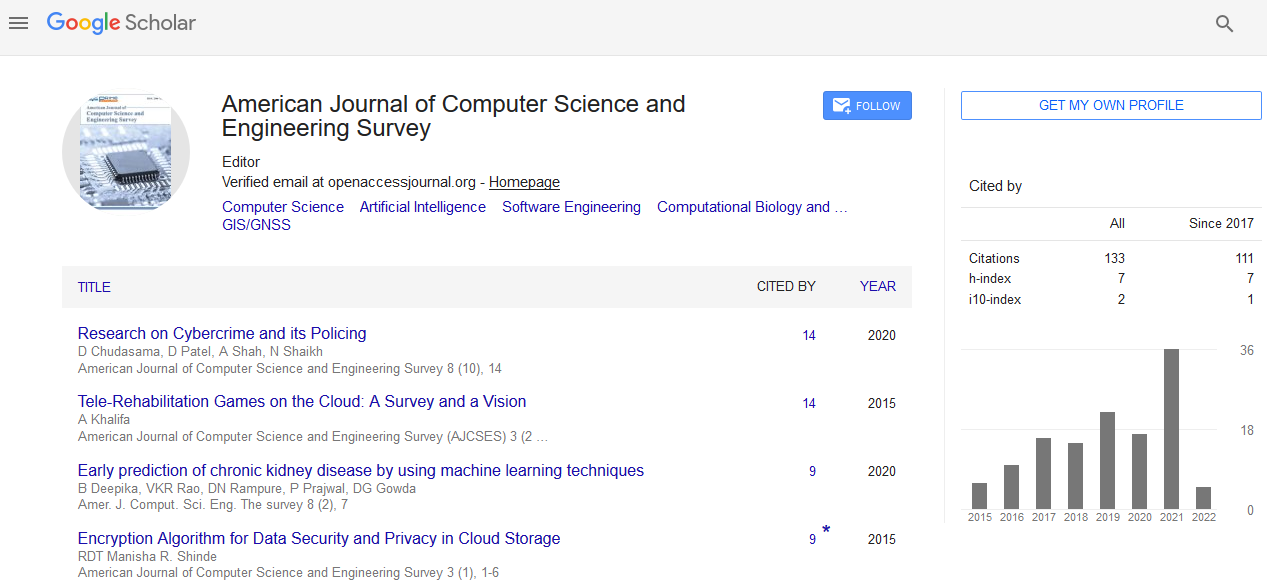Short Communication - (2024) Volume 12, Issue 1
The Importance of Coding in Daily Corporate Life
Hazel Ivy*
Department of Engineering, Sorbonne University, Paris, France
*Correspondence:
Hazel Ivy,
Department of Engineering, Sorbonne University, Paris,
France,
Email:
Received: 28-Feb-2024, Manuscript No. IPACSES-24-19983;
Editor assigned: 01-Mar-2024, Pre QC No. IPACSES-24-19983 (PQ);
Reviewed: 15-Mar-2024, QC No. IPACSES-24-19983;
Revised: 20-Mar-2024, Manuscript No. IPACSES-24-19983 (R);
Published:
27-Mar-2024, DOI: 10.36846/2349-7238.24.12.06
Introduction
The integration of technology into daily corporate operations
has transformed the way businesses operate, communicate,
and innovate. At the heart of this technological revolution
lies coding the process of creating instructions computers can
execute. In today’s interconnected world, coding skills have
become indispensable for professionals across diverse fields,
from finance and healthcare to marketing and manufacturing.
In today’s digital age, coding has become a fundamental skill
with profound implications for daily corporate life across various
industries. This paper explores the significance of coding in the
modern workplace, highlighting its role in driving innovation,
enhancing efficiency, fostering problem-solving abilities, and
enabling cross-disciplinary collaboration. It discusses how
coding skills empower professionals to automate tasks, analyze
data, develop software solutions, and adapt to rapidly evolving
technological landscapes. Furthermore, it emphasizes the
importance of coding literacy for individuals and organizations
seeking to thrive in a technology-driven world.
Description
Coding empowers individuals and organizations to innovate
by transforming ideas into tangible products and services.
Whether developing software applications, designing
websites, or building automation tools, coding enables
businesses to create solutions that address evolving market
needs and consumer preferences. Through coding, corporate
teams can prototype, iterate, and refine ideas rapidly,
fostering a culture of innovation within the organization.
Automation lies at the core of modern business operations,
and coding is the key to unlocking its full potential. By writing
scripts, macros, and algorithms, professionals can automate
repetitive tasks, streamline workflows, and eliminate human
error. From data entry and analysis to customer service and
project management, coding enables businesses to optimize
processes, reduce costs, and improve productivity across the
board. At its essence, coding is a problem-solving exercise that
requires logical thinking, creativity, and attention to detail.
By learning to code, professionals develop critical thinking
skills and gain the ability to break down complex problems
into manageable components. This problem-solving mindset
extends beyond coding itself, empowering individuals to tackle
challenges in various domains, from strategic planning and
decision-making to customer service and crisis management.
In today’s interconnected business landscape, collaboration
across disciplines is essential for driving innovation and
achieving strategic goals. Coding serves as a common language
that bridges the gap between different departments and
specialties, enabling professionals with diverse backgrounds
to collaborate effectively on projects. Whether it’s data
scientists working with marketers to analyze consumer trends
or engineers collaborating with designers to develop userfriendly
interfaces, coding facilitates cross-disciplinary synergy
and creativity. In a rapidly evolving technological landscape,
the ability to adapt and learn new skills is paramount for
individual and organizational success. Coding literacy provides
professionals with the agility and resilience needed to navigate
technological disruptions and stay ahead of the curve. By staying
abreast of emerging programming languages, frameworks, and
tools, professionals can future-proof their careers and position
themselves as valuable assets in the job market [1-4].
Conclusion
In conclusion, coding has become an indispensable skill in
daily corporate life, shaping the way businesses innovate,
operate, and collaborate in the digital age. From driving
innovation and enhancing efficiency to fostering problemsolving
abilities and enabling cross-disciplinary collaboration,
coding skills are essential for professionals seeking to thrive in
today’s technology-driven world. By embracing coding literacy,
individuals and organizations can unlock new opportunities,
drive growth, and remain competitive in an increasingly
interconnected and dynamic business environment.
Acknowledgement
None.
Conflict Of Interest
None.
References
- Iqbal A, Zhao G, Suhaimi H, He N, Hussain G, et al. (2020) Readiness of subtractive and additive manufacturing and their sustainable amalgamation from the perspective of Industry 4.0: A comprehensive review. Int J Adv Manuf Technol. 111:2475-2498.
[Crossref] [Google Scholar]
- Matulis M and Harvey C (2021) A robot arm digital twin utilizing reinforcement learning. Comput Graph. 95:106-114.
[Crossref] [Google Scholar]
- Xia K, Sacco C, Kirkpatrick M, Saidy C, Nguyen L, et al. (2021) A digital twin to train deep reinforcement learning agent for smart manufacturing plants: Environment, interfaces, and intelligence. J Manuf Syst. 58(B):210-230.
[Crossref] [Google Scholar]
- Lamraoui M, Barak M, Thomas M, El Badoui M. (2015) Chatter detection in milling machines by neural network classification and feature selection. J Vib Control. 21(7):1251-1266.
[Crossref] [Google Scholar]
Citation: Ivy H (2024) The Importance of Coding in Daily Corporate Life. Am J Comp Science. 12:06.
Copyright: © 2024 Ivy H. This is an open-access article distributed under the terms of the Creative Commons Attribution License, which permits unrestricted use, distribution and reproduction in any medium, provided the original author and source are credited.

